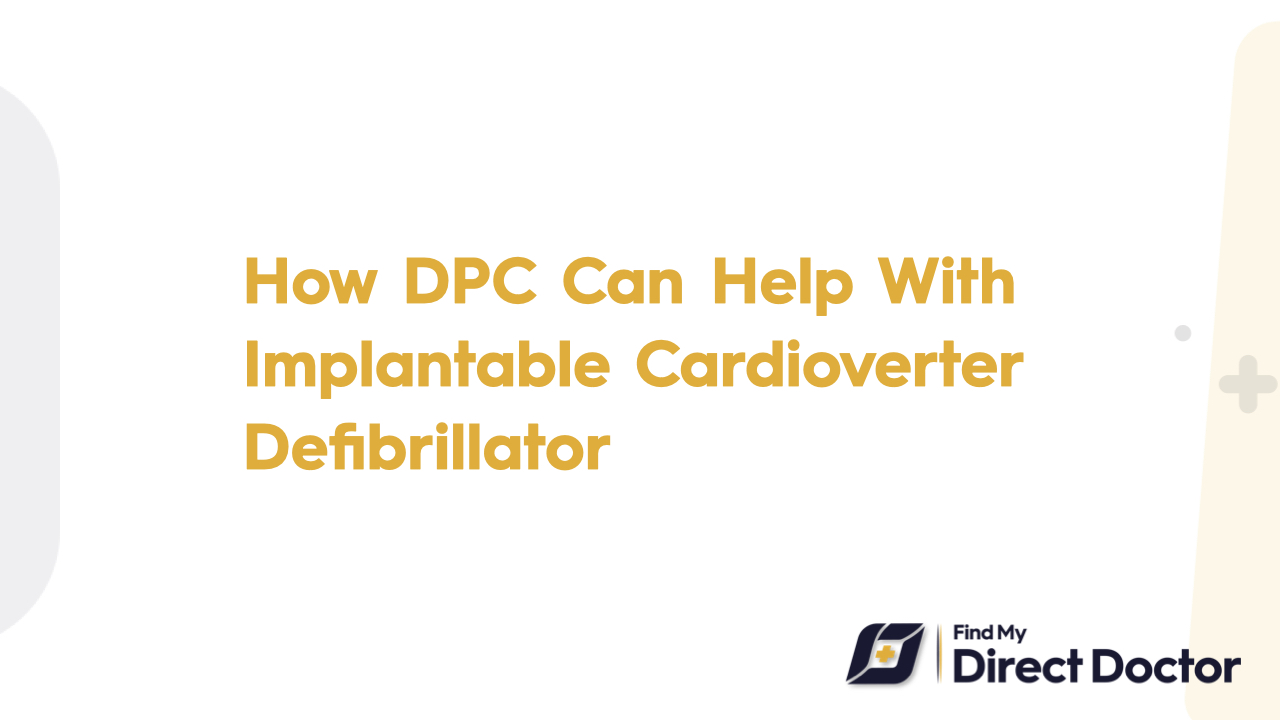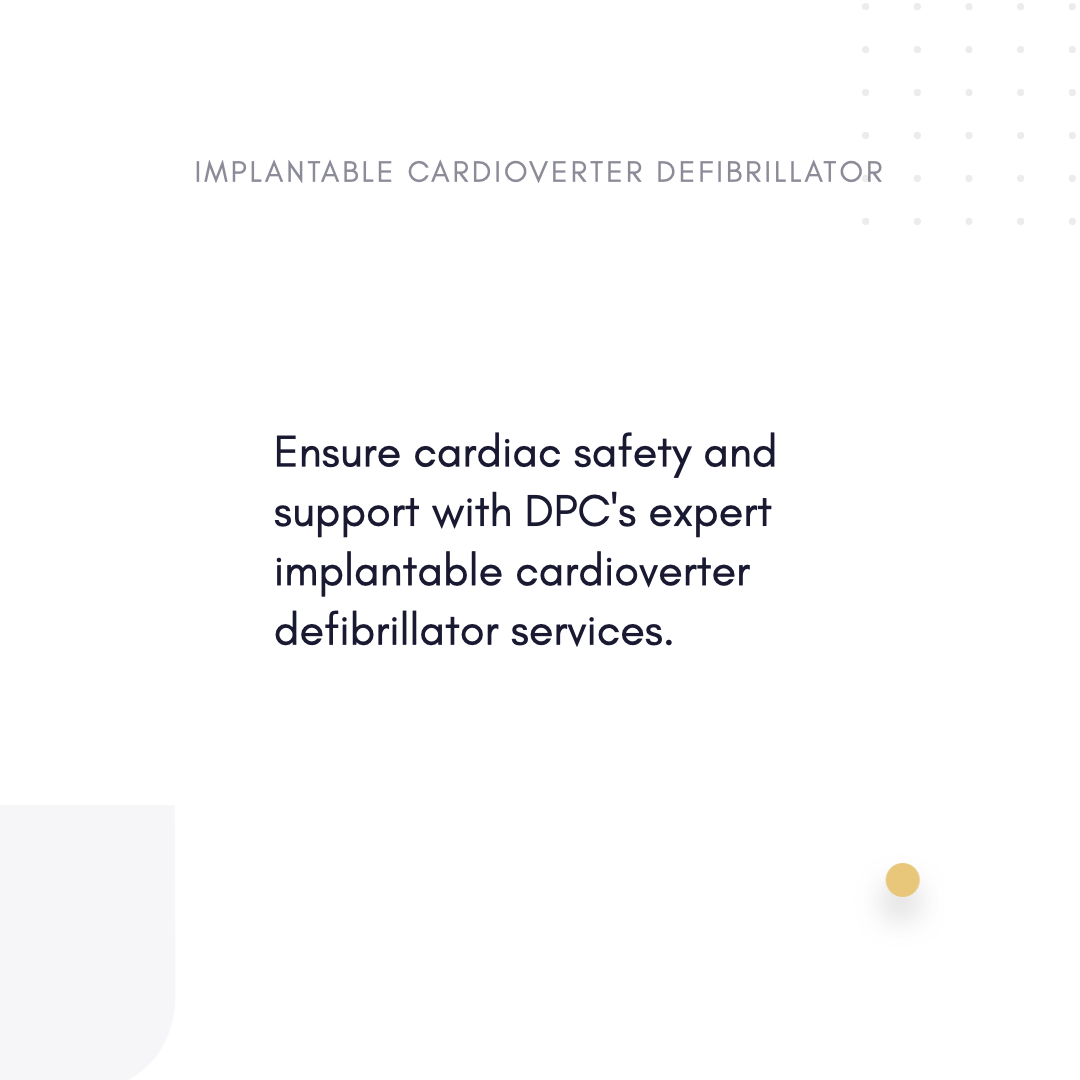Implantable Cardioverter Defibrillator (ICD) and Direct Primary Care (DPC): Lifesaving Care, Personalized Support
If you are at risk for life-threatening arrhythmias, an ICD can literally save your life. DPC makes sure that this important device is implanted correctly, monitored closely, and fits in with your overall heart care.

How to Understand ICD Implantation: How to Protect Yourself from Sudden Cardiac Arrest
An ICD is put in place to find ventricular fibrillation (VF) or tachycardia (VT).
- Give shocks or pacing to bring the rhythm back to normal.
- The process includes putting leads in the heart and a generator under the collarbone.
Important information for patients:
- Uses: For cardiomyopathy, a history of cardiac arrest, or genetic arrhythmia syndromes.
- Safety: Low risk; less than 2% chance of infection or lead dislodgement.
- Costs: Traditional clinics charge between 25,000 USD and 50,000 USD. DPC lowers costs by offering bundled care.
Risks of delayed implantation:
How DPC Changes Care for ICDs
Direct Primary Care (DPC) replaces disjointed cardiology with support that is organized and focused on the patient.
1. A full evaluation before the operation
- Advanced testing: Echocardiograms, Holter monitors, and genetic tests.
- Cardiologist collaboration: Work with electrophysiologists to find the best place for the lead.
- Optimize medications: Change beta-blockers or antiarrhythmics before surgery.
2. Clear Costs and All-Around Help
- Prices that include everything: As a member, you get implantation, follow-ups, and device checks.
- Lower costs: DPC patients save between 5,000 USD and 15,000 USD by getting lower rates.
- Other choices: Talk about wearable defibrillators if surgery isn't going to happen right away.
3. Caring Recovery and Close Watching
- Access 24 hours a day, 7 days a week: Take care of incision pain, swelling, or sudden shocks right away.
- Remote monitoring: Send ICD data to DPC providers so they can look at it in real time.
- Lifestyle advice: Tell your family to limit their exercise, reduce their stress, and learn CPR.
Success Stories from Real Life
- Case 1: John, 45, has hypertrophic cardiomyopathy. John's DPC team put in an ICD, which shocked him back to life during a VT episode.
- Case 2: Maria, 60, had a low EF after a MI. Maria's DPC provider set up ICD and cardiac rehab, which raised her EF from 30% to 45%.
ICDs in DPC: Frequently Asked Questions
- Q: When can I drive after getting an implant?
- A: 1 week without shocks; 6 months with shocks. DPC tells the DMV what to do.
- Q: Will I feel the shocks?
- A: Yes, but DPC changes the medications to lower the number of VT/VF episodes.
- Q: Do you cover replacing devices?
- A: Yes. You get battery changes every 5 to 10 years.
- Q: What if I need MRI scans?
- A: DPC makes sure that MRI-compatible ICDs are used whenever possible.
What Makes DPC the Best at Managing Cardiac Devices
The American Heart Association (AHA) stresses the importance of care from many different fields. DPC gets things done by:
- Cutting down on wait times: 90% of implants are done in 2 weeks instead of 6 weeks or more.
- Lessening problems: Taking care of wounds ahead of time lowers the risk of infection by 40%.
- Getting rid of costs: By getting care in bundles, members save between 10,000 USD and 25,000 USD.
Final Thoughts
An ICD is more than just a device; it protects you from sudden cardiac death. With DPC, you get a partner who makes sure that your implantation is done correctly, keeps an eye on you, and fits in with your heart care without any problems. No broken follow-ups or unexpected costs—just caring professionals who help you live your life to the fullest while keeping you safe.






